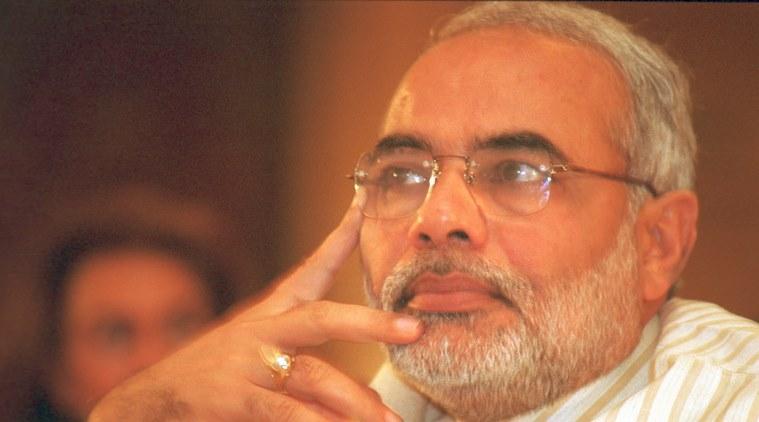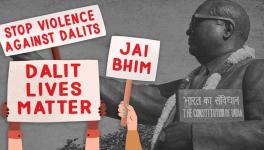‘2002 Riots Not a Conspiracy’: Key Findings of Nanavati-Mehta Commission

Image Courtesy: The Indian Express
The final and second report of the Justices (retired) GT Nanavati and AH Mehta Commission report—which was tabled by Gujarat government on December 10—has given a clean chit to then state government led by Narendra Modi in the train carnage of Godhra and subsequent riots that spread across the state killing over 1,000 people in the year 2002.
The report that runs into more than 2,500 pages in nine volumes found that there was no conspiracy involved in the riots and stated that they are largely the outcome of anger over the Godhra train burning incident.
Out of a total 44,445 affidavits in the report, 488 were filed by various government officials and deals with North, South, Central Gujarat, and Saurashtra and Kutch regions in dedicated volumes. One volume is dedicated to Vadodara and two to Ahmedabad city that saw maximum casualties. Some of these cases, including Naroda Patiya, Naroda Gam and Gulberg Society are being investigated under supervision of the Supreme Court.
Noticeably, the first report that was submitted in the year 2014 also had given a clean chit to Modi. The report was submitted to then chief minister of Gujarat, Anandiben Patel, months after Narendra Modi took oath as the Prime Minister. The tabling of the report followed a PIL filed by retired Gujarat Director General of Police RB Shreekumar. Five years later, the remaining part of report was tabled by the Minister of State (Home) Pradeepsinh Jadeja in the Gujarat Assembly.
Also read: The Ghost of Godhra Comes to Haunt Again
The commission was set up in 2002, following the burning of Sabarmati Express near Godhra station on February 27 in the same year, in which 59 persons had died. It was initially a one judge Commission headed by Justice KG Shah, which was later expanded to be headed by Justice GT Nanavati. After the demise of Justice Shah in 2008, Justice A Mehta, the presiding judge of the hearing that granted bail to Babu Bajrangi, a prime accused in the cases of riots, was appointed in his place.
Initially, the Commission looked into the events leading to the Sabarmati Express incident and subsequent riots that engulfed the state killing more than 1,000 and the inadequacy of administrative measures taken to prevent the incidents. It also probed whether the Godhra incident was pre-planned; and whether information was available with the agencies to prevent it. However, in 2004, the commission expanded its scope and started inquiry into the role and involvement of then CM Modi and his ministers, police officers, and other individuals and organisation.
Statements and evidence of 3 whistle-blower IPS officers dismissed
The Commission completely dismissed the evidence provided by former IPS officers and whistle blowers Sanjeev Bhatt, Rahul Sharma and Shreekumar. The Commission held that false evidence was presented by the officers against then Minister of State for Home, Gordhan Zadaphia, and that departmental action will be taken against the trio.
Sanjeev Bhatt
The report held that IPS officer Sanjeev Bhatt was lying about his presence at a meeting at CM’s residence on February 27, 2002. The report also held that Bhatt, who had filed an affidavit in 2011 in Supreme Court implicating Modi for his involvement in the riots, had used a false document and a false fax message.
The commission relied on statements and affidavits of senior IPS officers including then DGP K Chakravarthi, then Home Secretary K Nityanandam and Modi himself, to negate and refute Bhatt’s claims. The commission stated that the fax message, which was purportedly signed and sent by Bhatt on Februrary 27, was actually sent on February 2, 2002 by PP Upadhyay regarding an incident at Pandarva in Panchmahal district.
Also read: An Innocent Man is Persecuted, Says Wife of Ex-IPS Sanjiv Bhatt
He had claimed that he reached the then CM’s residence for the meeting accompanying Chakravarthi in his vehicle. He had also claimed that Modi had instructed the Gujarat police to ‘refrain from resorting to action and permit the angry majority to vent at minority community.’
Bhatt, a 1988 batch IPS officer, was a Deputy Commissioner (Intelligence) in State Intelligence Bureau in 2002 and was dismissed from police service in 2015 on grounds of “unauthorised absence”. He has been in jail after he was awarded life imprisonment in the case of a custodial death during his tenure in Jamnagar in 1990. Previously, he was also denied bail in a drug planting case of 1998.
Rahul Sharma
The Commission refused to trust the call record details provided by former IPS officer Rahul Sharma on grounds that he could not deliver the CDs on which the data was originally stored.
When riots broke out Sharma was the Superintendent of Police (SP) of Bhavnagar. On the third day of the riots, a mob tried to set fire to a residential madrassa in the outskirts of Bhavnagar, when Sharma issued orders to open fire to disperse the mob causing injuries and fatalities but saving the children. However, he was transferred out of field operations and posted as Deputy Commissioner of Police (DCP) in the police control room in Ahmedabad in response to his actions.
In his new role, Sharma was asked to assist the Crime Branch led by PP Pandey in investigating the Gulberg Society and Naroda Patiya cases. In the course of the same, he reportedly gathered phone call records of police officers and political leaders who were accused of being complicit in the violence. Sharma collected the said data from local phone companies, AT&T Wireless and CelForce, and was asked to process those by Pandey. However, Sharma was transferred again before he could complete and had to hand over the original CDs to Pandey that became untraceable later.
Years later, Sharma was charged with misconduct on grounds that he did not submit the CDs. Subsequently, he took voluntary retirement in 2015.
RB Shreekumar
Shreekumar was the Director General of Police (DGP) Intelligence when riots broke out in 2002. He had submitted nine affidavits before the Commission and had alleged that illegal orders were served to the police officers during the riots due to which the state machinery had remained deliberately inactive.
Also read: The High Price of Conscience
The Nanavati Commission report held that, “No such allegation was made by him either in his first affidavit or when he gave evidence before the Commission. From his subsequent affidavits, it is clear that he is a disgruntled officer.”
Clean Chit to Ministers of then Modi led government
Three BJP leaders – late Haren Pandya, Bharat Barot and late Ashok Bhatt, have been given clean chit as Commission found the allegations against them to be false.
“There is no evidence to show that these attacks were either inspired or instigated or abated by Minister of State or by any religious or political party or organisation. Only thing that can be said with some certainty on the basis of evidence is that some local member of the VHP (Vishwa Hindu Parishad), Bajrang Dal took part in incidents of violence in their respective localities in Ahmedabad and other three or four districts. Some local BJP workers also seem to have taken part. However, there is also evidence to show that BJP leaders in some districts helped the authorities and locals in maintaining peace,” the report stated.
Role of NGOs – Negative
The Commission also found role of two NGOs – Jan Sangharsh Manch, led by late Mukul Sinha, and Citizens of Justice and Peace led by Teesta Setalvad as ‘negative’.
“These NGOs wanted to tarnish the image of Modi, Gujarat and Gujaratis in the world,” MOS (Home) Jadeja said as he tabled the report.
Teesta Setalvad had claimed before the Supreme Court appointed SIT that then Panchmahal Collector Jayanti Ravi had told Citizens Tribunal about her objection to the decision of then CM Modi and then Health Minister Ashok Bhatt to take bodies from Godhra to Ahmedabad. Ravi further told the tribunal, headed by retired Justice Krishna Iyer, that her objection came when the bodies were being handed over to VHP office bearers Jaydeep Patel and others.
Also read: Teesta Setalvad Case: Supreme Court Expresses Astonishment at Gujarat High Court Judgement
The Commission did not find any ‘substance’ in the allegation and cited Ravi’s deposition, who denied any such statements given earlier to anybody.
Jan Sangharsh Manch, a human rights NGO led by activist and advocate Mukul Sinha, had made several accusations against the State and administration and their handling of the Godhra train carnage and subsequent riots. The Commission described the allegations as ‘baseless and irrelevant’.
Get the latest reports & analysis with people's perspective on Protests, movements & deep analytical videos, discussions of the current affairs in your Telegram app. Subscribe to NewsClick's Telegram channel & get Real-Time updates on stories, as they get published on our website.
























